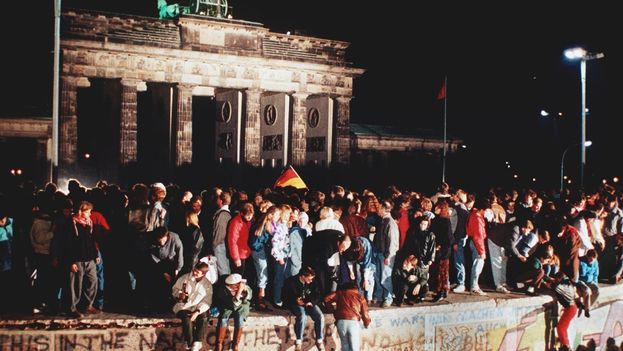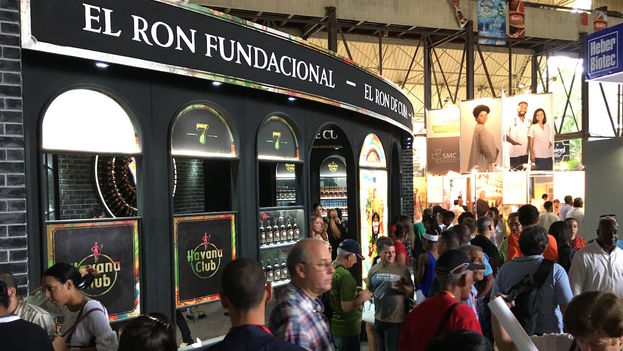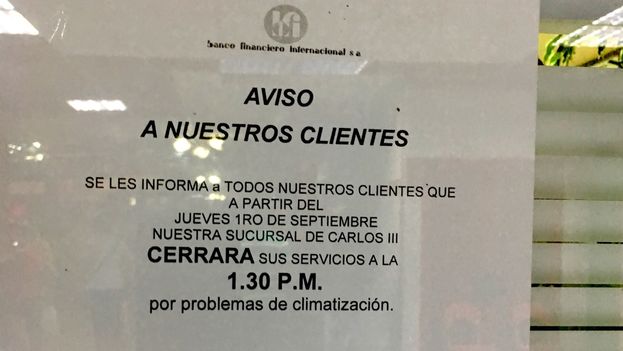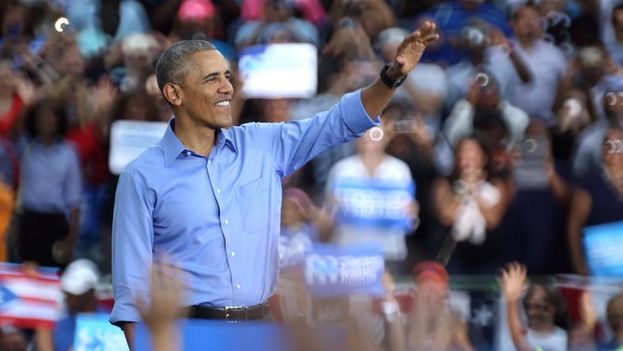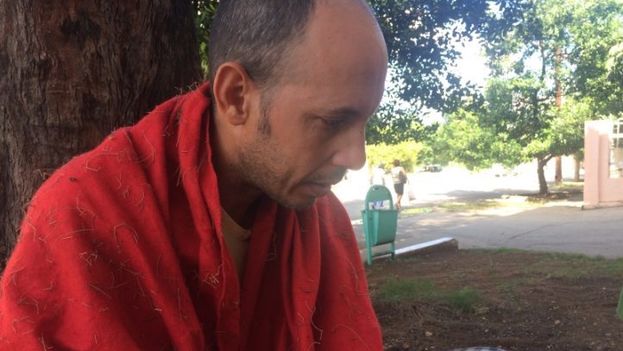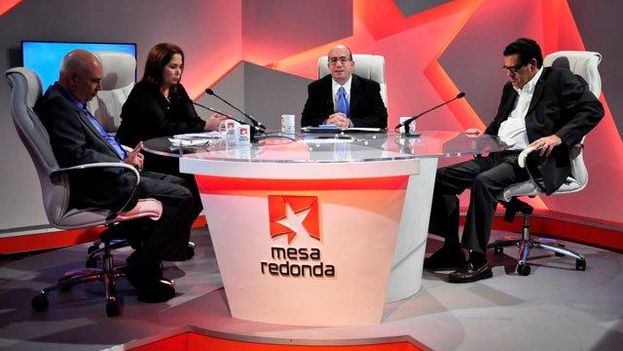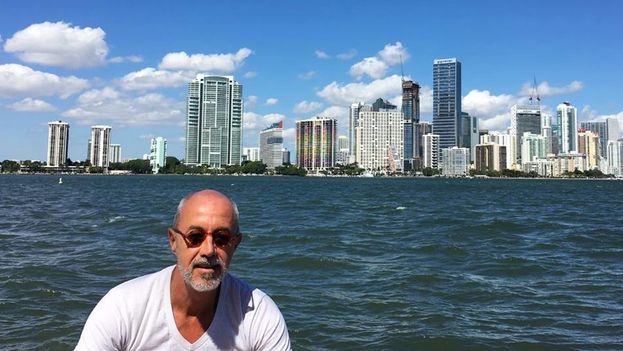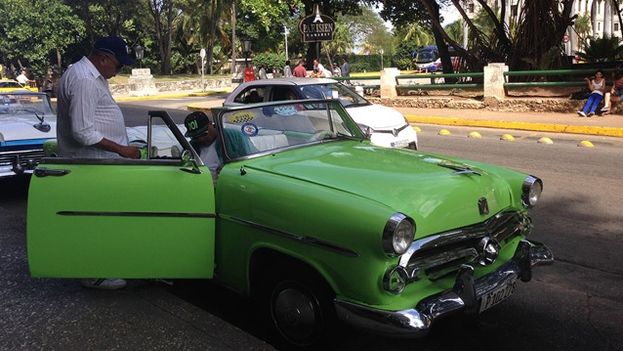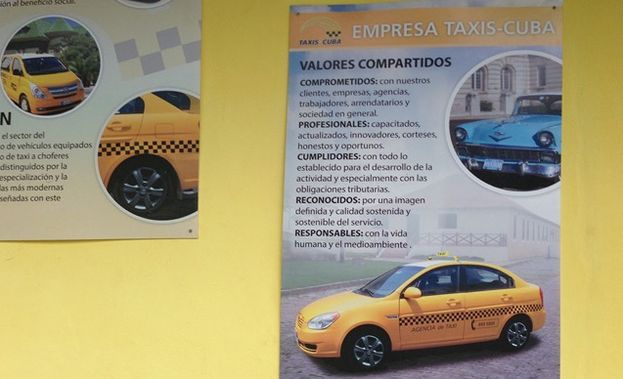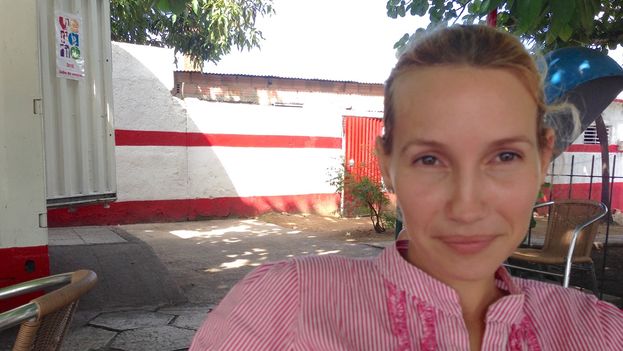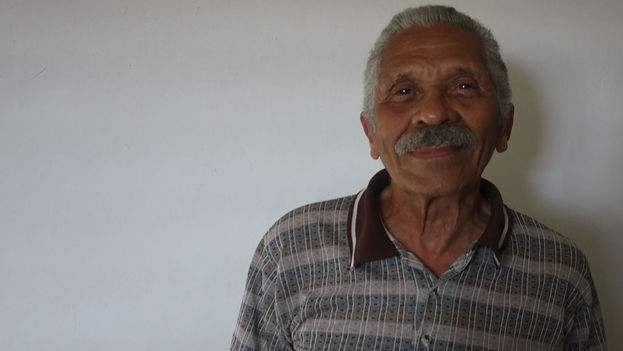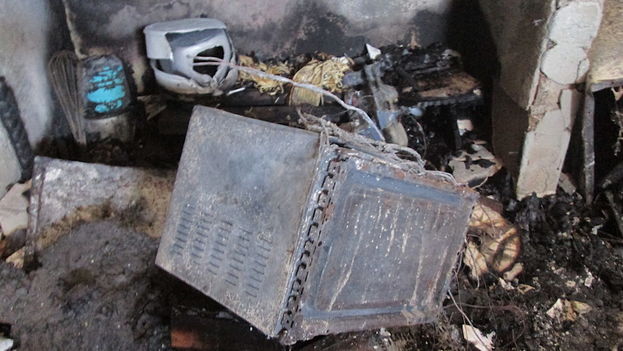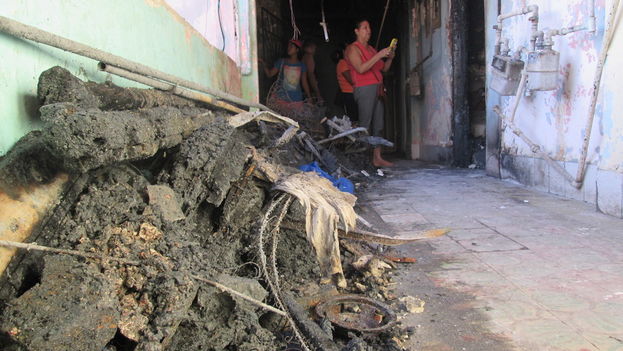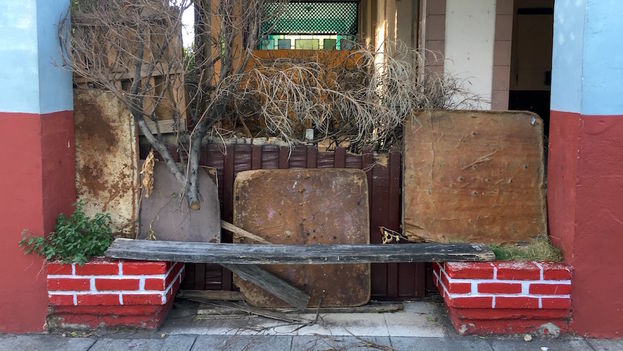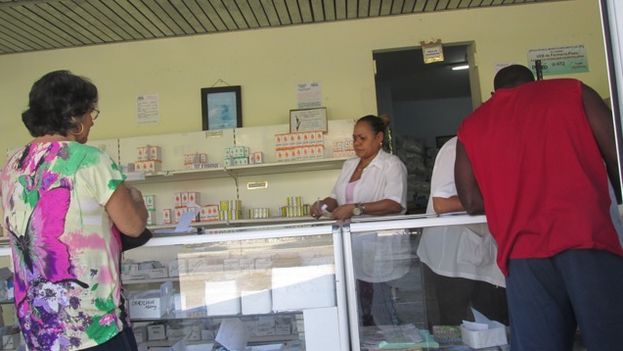
![]() 14ymedio, Zunilda Mata, Havana, 7 November 2016 – “There is no headache that can resist this Bayer aspirin,” says Vicky, a seller of imported medicines who offers vitamins, sedatives, flu remedies and ointments. The shortages in state pharmacies fuel illegal trade in medicines in Cuba, many of them brought from abroad.
14ymedio, Zunilda Mata, Havana, 7 November 2016 – “There is no headache that can resist this Bayer aspirin,” says Vicky, a seller of imported medicines who offers vitamins, sedatives, flu remedies and ointments. The shortages in state pharmacies fuel illegal trade in medicines in Cuba, many of them brought from abroad.
Vicky has been “in this arena” for three years, according to what she tells 14ymedio at her house in Old Havana, which she has repaired and furnished thanks to the medicine business. She says she has regular customers whom she keeps supplied with “antacid pills, multi-vitamins and flu remedies.”
Customs regulations in force since 2014 permit the import of up to ten kilos of medications duty-free into the country. It is only required that they come in “luggage separate and independent from other articles” and that they keep “their original packaging.” continue reading
“Do you know how much Alka-Seltzer fits in ten kilos?” Vicky jokes about the commercial brand of effervescent antacid that is recovering its popularity among Cubans after decades of absence. “There are many needs, and this is a business that never loses,” she explains.
“I have several contacts who travel to Miami and Panama to supply me,” says Carlos Manuel, another medication seller, more focused on the Island’s central market. “Many are accustomed to US brands, so I try not to change my suppliers,” he adds.
“In the countryside people have a tough time getting many of these things,” says the seller, who explains that some customers do not pay him with money but with agricultural products. Carlos Manuel, in fact, already has “agreed to a pig at the end of the year” in exchange for “a nebulizer and a digital blood pressure monitor” ordered by a sixtyish farmer.
Cuba produces some 531 medications, of which 322 go to the pharmaceutical network and the rest to hospital centers, according to data from the Ministry of Public Health. The state subsidizes the sale in dispensaries and regulates the quantities that each consumer can buy, even for non-prescription medicines.
The pharmaceutical industry is going through a difficult period with the lack of liquidity that the country is experiencing. Managers of the state company BioCubafarma explained to the official media last October that the medication deficit is due to decreased availability of raw materials, a result of defaults by foreign suppliers.
“Those that sell fastest are acetaminophen and ibuprofen plus vitamin E, triple antibiotic creams and Scott’s Emulsion,” says Carlos Manuel about his alternative offerings. “There is much demand for medications by older people,” he says.
With a very low birth rate, high life expectancy and increasing emigration by the young, Cuba is on track to become the ninth oldest nation in the world in 2050 and the oldest in Latin America. Currently the elderly exceed 20% of the country’s 11.1 million residents.
“There are more requests for circulation problems, knees guards, canes, bedsore creams and disposable adult diapers.” However, the seller says that still “the medications for chronic illnesses have to be gotten here through the black market, because out there it is very difficult to buy without a medical prescription.”
In that latter category are third generation antibiotics and many of the drugs for heart disease. But also the aerosol Salbutamol for asthmatics and doses of Enalapril for arterial hypertension are scarce in the state networks and are more complicated to acquire abroad.
The imports are products with flashy labels, bottles that often promise a number of pills “free” and with variations for all tastes. “I have the same medicine in pill form but also in gum and syrup,” adds Vicky.
A bottle of 30 children’s animal-shaped, soft vitamins costs in his “private dispensary” some five convertible pesos, a fourth of the average monthly salary. A nasal decongestion spray costs twice as much, the same as a cream for combating nail fungus.
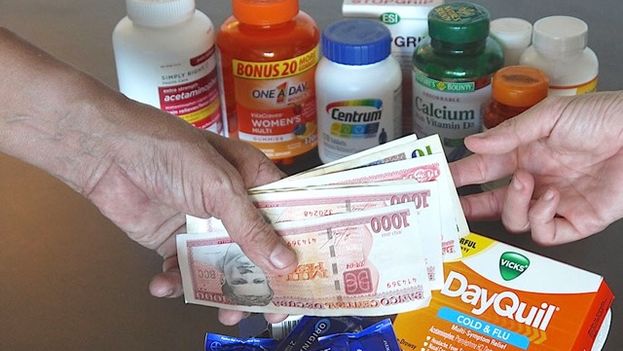
“Among my clients some spend up to 30 CUC per month on medicines, above all those who have young children or the physically impaired in their care,” the woman says.
The medicines distributed in the pharmacy network throughout the country mostly come in unattractive boxes, in the traditional blister packs or white plastic packages; there is no variety even if by chance there is a medicine for each illness. “It is not the same; although they may be good medicines they look outdated, old,” reflects Vicky.
“Everything that I have is quality, without adulteration,” the saleswoman promises a customer who has come to her house in search of a bottle of Omega 3 and other products. “It does not matter if you don’t have pain or corns, it is always better to invest in health,” she takes the opportunity do some advertising.
Translated by Mary Lou Keel

